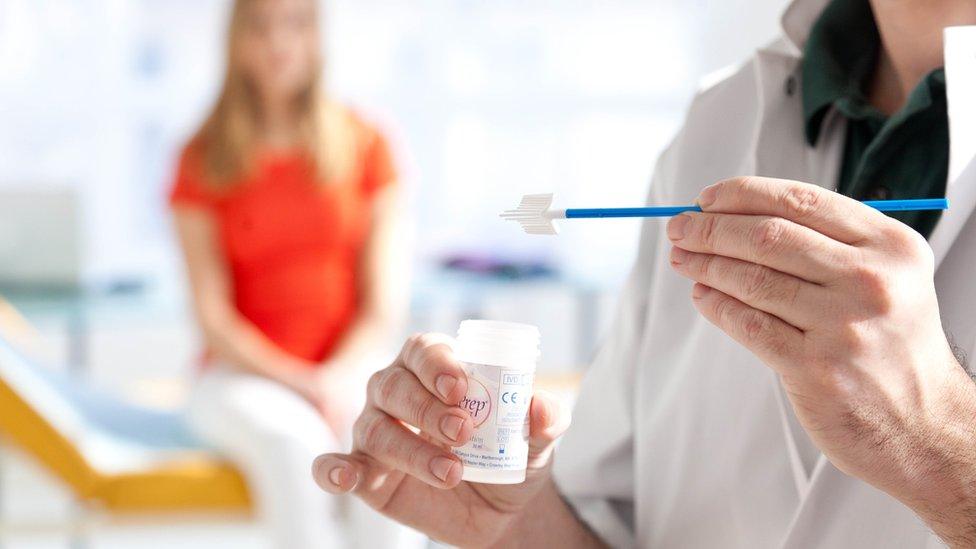Urine test to end 'smear fear'
- Published

Women who are too anxious or embarrassed to go for a smear test could instead provide a urine sample to be screened for cervical cancer, research suggests.
A trial found urine testing was as good at detecting a virus called HPV that is a big risk factor for the cancer.
Bigger trials are still needed but experts said self-testing could be a game-changer for women.
The number of people going for smear tests is lower than ever in the UK.
NHS figures show attendance is now down to 71%, meaning several million women across England have not had a smear test for at least three and a half years.
Smear tests prevent 75% of cervical cancers, so while they may not be pleasant, they are important.
A smear test can detect early, abnormal cell changes before a cancer develops.

Big Brother contestant Jade Goody died on 22 March 2009 after being diagnosed with cervical cancer
The NHS invites women between the ages of 25 and 64 to attend for smears.
Celebrities and campaigners have tried to encourage more women to attend but scientists are also looking at other ways to screen for the condition to improve screening uptake.
Some pilot studies are already asking women to try out self-testing at home with a vaginal swab.
Now, researchers at the University of Manchester say urine testing would be another option.
They asked 104 women attending a colposcopy clinic to try the urine test and it performed just as well as conventional smears for detecting high-risk HPV, BMJ Open, external reports.
Lead researcher Dr Emma Crosbie said: "We're really very excited by this study, which we think has the potential to significantly increase participation rates for cervical cancer screening.
"Campaigns to encourage women to attend cervical screening have helped. The brilliant campaign by the late Jade Goody increased numbers attendance by around 400,000 women.
"But sadly, the effects aren't long lasting and participation rates tend to fall back after a while. We clearly need a more sustainable solution."
She said larger trials of the urine test were still needed before it could be recommended to the NHS.
Athena Lamnisos, from the Eve Appeal, said: "Finding ways of screening that avoid the need for a physical test and use of a speculum is important.
"For women living with the impact of FGM [female genital mutilation] or those who have suffered sexual abuse or live with conditions such as vaginismus, screening in a non-invasive way could be game-changing for screening uptake.
"This research sounds like a promising early step but is some way off being rolled out through the NHS.
"In the meantime, women must continue to book their screening appointment when they're called. It's a life-saving test."
- Published21 March 2019

- Published23 October 2018
